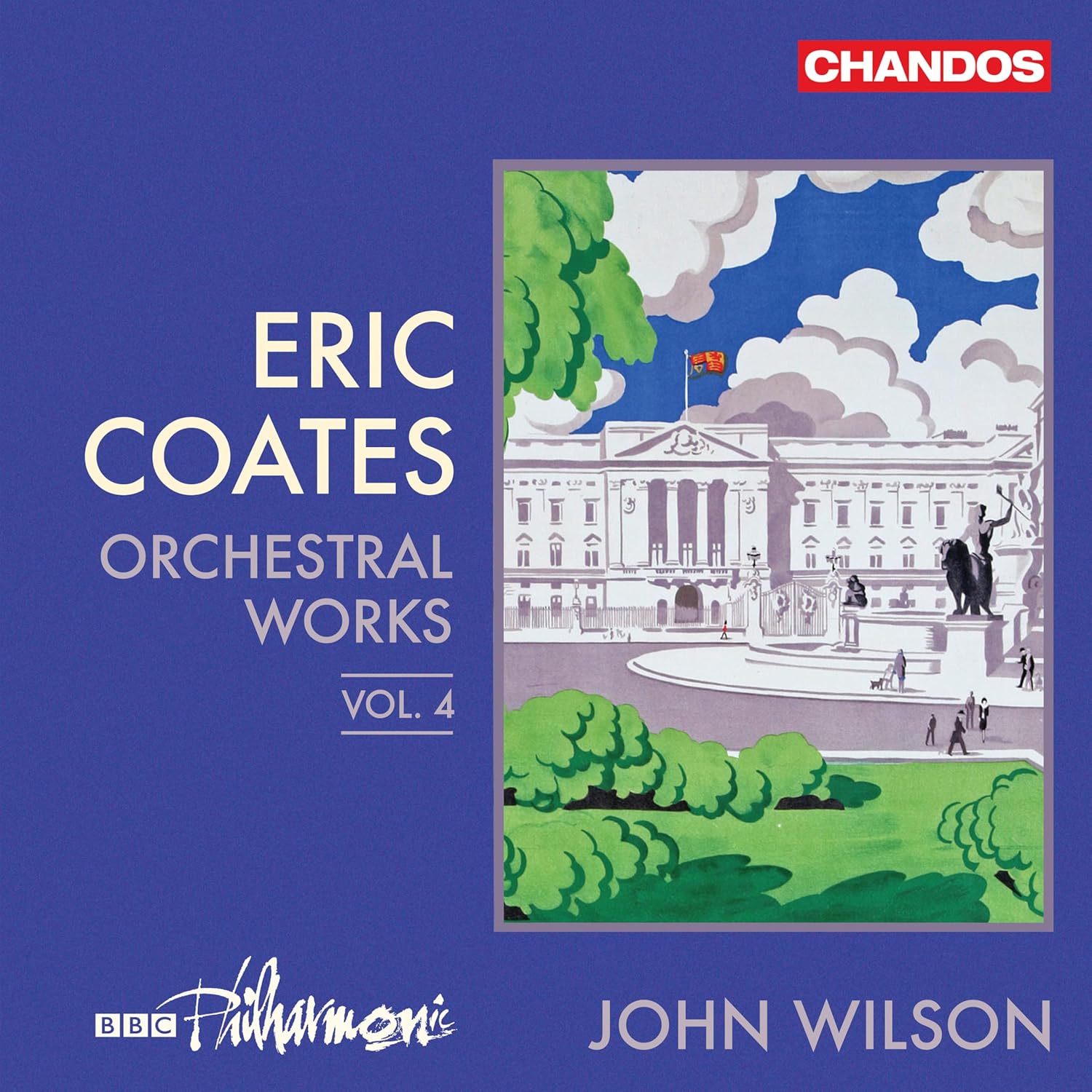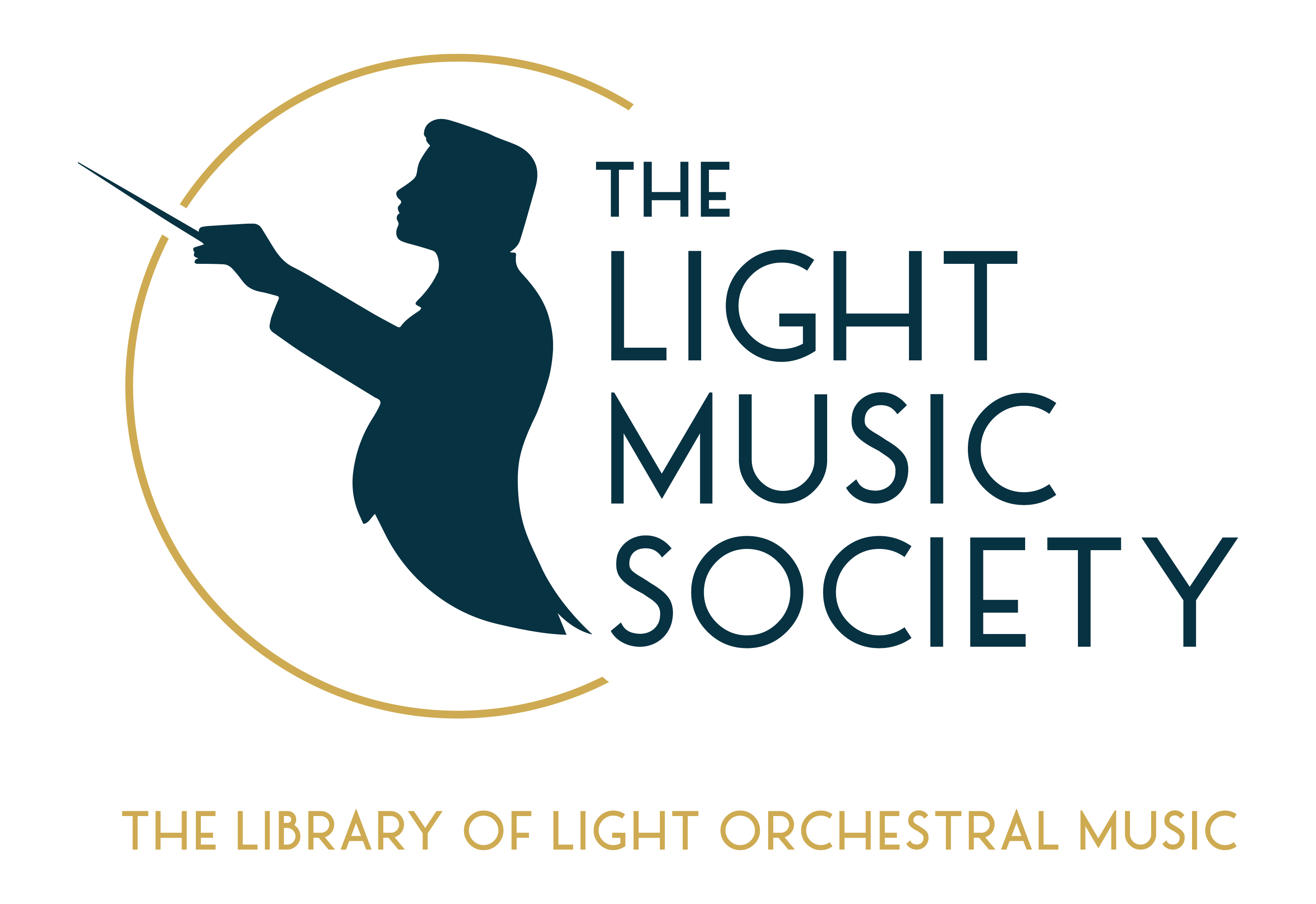BBC Philharmonic conducted by John Wilson
Chandos
CHAN20292
The celebrated releases of Eric Coates’ orchestral works by Chandos has garnered much critical praise and it is truly gratifying to see the grandfather of Light Music being taken so seriously both by listeners and performers alike. The champion of Coates and Light Music at the proms has long been John Wilson, who has been branching out in some interesting directions since establishing himself as “Mr. Light Music”. It is good, however, to see him pick up the baton with Coates’ music once again.
The opening number on this disc is the march Music Everywhere, which was dubbed the Redifusion March once it was selected as the signature tune of Redifusion Television. It is a somewhat curious entity in Coates’ output: following virtually to the letter all of the structural marks of the perhaps better known Calling All Workers march, but strangely lacking the same melodic inspiration. It is, nevertheless, a spirited work and a rousing curtain raiser for this disc and the BBC Philharmonic under the inimitable baton of John Wilson are adept at illustrating the piece’s finer qualities.

Three larger scale works provide the majority of the disc’s running time. First, there is the Three Bears Phantasy, written for the composer’s son Austin. Written in the 1920s, the work gives a joyous roaring 20s exuberance to the classic fairy tale. Coates’ love of dancing is demonstrated by his Four Centuries Suite, which combines four different periods of dance music into a coherent work, dedicated to the the composer’s wife. Coates’ personal life is well reflected in all of these larger works and From Meadow to Mayfair is perhaps the most obvious example of this, depicting scenes from his early life in rural Nottinghamshire, where he grew up, to the bustle of London, to which his professional life took him.
As with several of the previously released discs from Wilson & Co of Coates’ work, there are other recordings available and it does make for an interesting comparison. On the whole, Wilson stays pretty close to the example set by the composer himself on the existing recordings of him conducting his own works. Granted, there are some differences insofar as some of the original recordings contain some cuts, presumably in the interest of ensuring space for other tracks to be recorded on the same records. One noticeable example of such a restoration is the opening of the Footlights Waltz.
The miniatures might be too easily overlooked in relation to the longer works here, but it is a well balanced disc opening with a march, a waltz and then a charming songlike work in I Sing To You before a final miniature Under the Stars slots between From Meadow to Mayfair and Four Centuries. The miniatures clearly display Coates at his most romantic and they provide delightful counterbalances to the suites and fantasia.
What the CD exemplifies, however, is the sophistication in Coates’ works: these substantial pieces are given authoritative, practically definitive performances by the BBC Philharmonic and John Wilson, whose attention to detail allows us to see the sheer musicality in the composer’s music. The performances celebrate Coates’ flair for form, orchestration and melodic invention (and transformation), far deeper than those who claim him a writer of “pretty tunes” might superficially identify. Of course, it goes without saying, but I’ll say it anyway: Light Music enthusiasts need not hesitate!
DA

Leave a Comment
I hope you enjoyed this post. If you would like to, please leave a comment below.